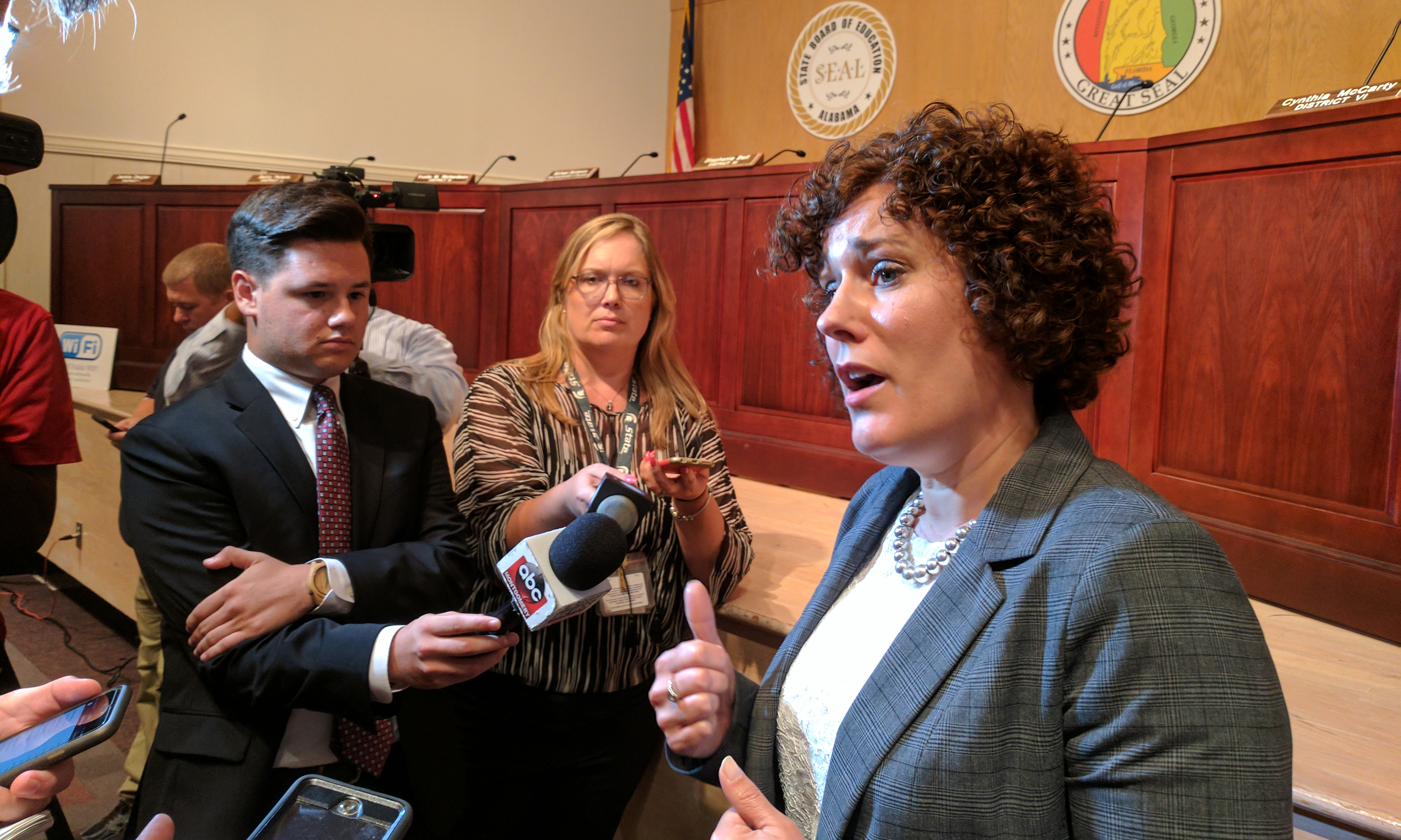By Bill Britt
Alabama Political Reporter
The State Finance Department’s failed implementation of a $47 million dollar software solution has led to tens of thousands of dollars in unpaid bills, thousands of angry vendors, and frayed nerves, throughout almost every State agency, yet, it is still being dismissed by those responsible for the debacle as a mere glitch. The Finance Department has been telling local TV news outlets the problems should be solved in two weeks.
The statewide financial software program known as “STAARS” has been plagued since the beginning, even though Finance Director Bill Newton and his assistant Rex McDowell have tried their best to hide this fact.
On December 9, a spokesperson for Finance claimed, “Payments are being processed and paid daily…and additional State employees have been assigned to assist with the implementation of the upgrade.”
However, an email from the State Comptroller, Tom White, sent on December 8, paints a very different picture. The subject line reads: “IMPORTANT INFORMATION: FY 16 Emergency Declarations for Services Normally Paid on PO.” The body says, “Please forward this information to your agency head and all staff as needed. A number of agencies have not been able to set up FY 16 purchase orders (PO’s). This delays processing payment transactions for FY 16 services.”
Agencies can declare a Title 41-16-23 emergency for each specific type of service in order to process FY 16 payments, until the purchase orders are issued. Title 41-16-23 declared emergencies are specific, not general or blanket declarations. A purchase order is considered a contract purchase order. All emergency declarations must meet minimum requirements specified in Finance Fiscal Policy & Procedures Manual, Chapter 4, page 4-4.
When GAX payment is processed, attach invoice(s) and the specific emergency declaration as the legal authority for payment.”
So debilitating has been the so-called “implementation update,” agencies cannot even issue purchase orders, according to White’s memo.
However, Finance continues to downplay the magnitude of the problems which have been wide spread and persistent.
A November email from White states, “As of November 3, STAARS has been in production for 20 work days. The project team is working to resolve a number of documented interface, transaction processing, and production and reporting issues. We appreciate agencies patience as we work to identify and correct outstanding issues. The project team and all involved as working as fast as possible to correct all reported problems…agencies are working extended hours to process a large volume of transactions.”
In the first 20 days, the accounts payable system had received 65, 823 documents and had processed 42, 483 or a little more than 64 percent with 23,240 unprocessed, with 10 days left in the month. As one agency worker said, “Those were just the ones that we could get into the system.” White’s memo from last week shows the purchase orders are still not showing up in the system. As a high level staffer explained it, the backlog is not shrinking, but growing larger, contrary to the Department of Finances’s claims.
Just two days into the implementation, over 900 complaints had been lodged with the STAARS support team. According to the October 7 email, “The STAARS Support Services team has received over 900 requests for support in the first two days of production. Due to the high volume of support requests, we are experiencing delays in resolving lower priority issues. We are working hard to achieve high service levels, but in the meantime, please be patient. Your request will be worked and resolved as quickly as possible. Prior to contacting Support Services, we recommend attempting to resolve the issue within your agency. If you are unable to get answers within your agency, our Support Services team is available to assist you.”
A State lawmaker speaking on background confided, not only is the State not paying vendors, it is prioritizing which ones to pay and not to pay. So-called “mom and pop” businesses are taking a back seat to high end vendors with lobbyists.
On October 27, 2015, an invitation was sent to State agencies, inviting them to a party themed, “In recognition of the recent STAARS Go Live.”
A reception was to be held at the swanky, downtown Montgomery eatery, Central, where “Governor Bentley, Treasurer Boozer, and other key State leaders,” would be on hand to celebrate the kickoff. The invitation also noted, “Please feel free to invite key members from your agency who participated in the project.”
By November 2, 2015, there was nothing to celebrate and a postponement memo was sent: “STAARS leadership has decided to reschedule the launch celebration currently scheduled for Wed 11/4 until early December. This will allow everyone to focus on important transaction backlogs and operational issues. The STAARS team remains committed to supporting the agencies and improving overall results. We will confirm a new date for the event shortly.”
The thought that CGI, the company that supplied the $47 million in off-the-shelf software, would be hosting a cocktail reception for the people who signed their contract, seems to fly in the face of our State ethics laws.
What is clear, is that Newton and McDowell are behind a failed system, and trying to keep a tight lid on the catastrophe.
It is not clear if Newton cleared having the party with the Ethics Commission.

















































